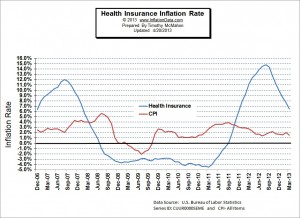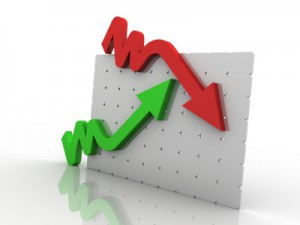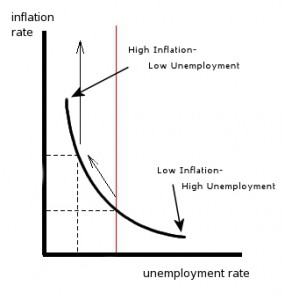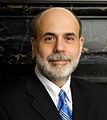Doug S. Says I'm full of It- Regarding Gas Inflation I just got the following comment from Doug S. I saw the chart on how gas prices haven't really risen when considered with inflation. I am 61 years old, and when I was working in the mid- to late-60s as a high school student, I made $1.60 an hour as minimum wage. Gas was only .25-.35 per gallon (with 'gas wars', much of the time cheaper) so with one hour of work I could purchase 5-6 gallons of gas. Now, with a minimum wage of $7.50 or so, you can only purchase a bit more than 2 gallons of gas, depending on the day of the week. Minimum wage has gone up, what, 4.6-5 times or so, but gas prices have gone up 10 times or more. Where am I … [Read more...]
Health Insurance Inflation
Since the beginning of 2012, health insurance costs have skyrocketed significantly above the rate of overall inflation. As you can see from the chart below, health insurance inflation peaked at almost 15% per year in 2012 and at 12% in 2007 while overall inflation hovered around 2%. When people focus in on one single item, this is why many people don't believe the overall inflation rate. They say, "Oh, my health insurance went up 15% how can inflation be only 2%?". But what they fail to take into consideration is that in September of 2008 when the overall inflation rate was 5% health insurance was falling 2%. Yes, according to the U.S. Bureau of Labor Statistics, health insurance costs … [Read more...]
Stimulate the Economy? Please Don’t!
Personally, I would love to see the inflation rate stay between 1 and 2% or better yet between 0% and 1%. Why? In the long run low inflation rates benefit everyone, as people can accurately judge their future costs and make sound business (or family management) decisions. In addition to making planning easier it also promotes saving because people know that the money they put away will be worth the same amount (plus interest) as that which they saved in the first place. High savings results in stability in times of need, and it provides capital for industry which generates wealth as new things are produced. But why save if the value of the money you are putting away is eroding? In a … [Read more...]
Why Money Printing Makes You Poorer
Here is an excellent article by Bill Bonner on the announcement that Japan made that they are going to crank up the printing press and eliminate the deflation that has been plaguing their economy over the last twenty years. In it he explains the effects of money printing both short term and longer term. He also debunks the idea of where demand actually comes from. He says, "People always want stuff. Demand is infinite. Government doesn't have to stimulate it. What really matters is buying power."~Tim McMahon, editor Why Money Printing Makes You Poorer Last week, Japan announced that it would undertake a bold and radical experiment. After 23 years of on-again, off-again deflation, the new … [Read more...]
What is Biflation?
Biflation is a relatively new term coined by Dr. F. Osborne Brown, a Senior Financial Analyst for the Phoenix Investment Group in 2003. It is sometimes referred to as "mixed inflation" but it basically refers to a condition where both inflation and deflation occur at the same time. This seemingly contradictory situation is not a real a paradox but simply appears to be one as a result of faulty logic. The problem results from thinking that all prices rise in lock-step in times of inflation but this is clearly not the case. It is quite common for electronics to be declining in price (deflation) while oil and gas are increasing in price. Thus we have "mixed inflation" or "biflation" however … [Read more...]
What is the Phillips Curve?
The Nature of the Phillips Curve The Phillips Curve is an economic concept was developed by Alban William Phillips and shows an integral relationship between unemployment and inflation. Phillips began his quest by examining the economic data of unemployment rates and inflation in the United Kingdom. He tracked the data over business cycles, and found wages increased at a slow rate when unemployment was high, and faster when the unemployment rate dropped. Business cycles are basically economic activity over a lengthy period of time. Originally, business cycles were thought to be predictable, but they have since proven themselves to be irregular in the areas of duration, frequency and … [Read more...]
What Does 8% Inflation Really Mean?
By Dennis Miller Eight percent is not good news. In my latest article I shared some reader feedback from our inflation survey, and in case you missed it, the Money Forever Reader Poll Inflation Rate is 8%. But what does that number really mean for us – seniors and savers trying to protect our buying power? It's time to read the tea leaves and find out. Up to Your Ass in Alligators You may remember the old poster that read, "When you are up to your ass in alligators, it's tough to remember the goal was to drain the swamp." You may have felt overwhelmed during the last few years, as the investment options for your retirement portfolio changed. You might read about the benefits of gold … [Read more...]
Food Price Inflation Since 1913
On March 4, 1913, the last day of his presidency, President William Howard Taft signed a bill promoting the Department of Labor to a Cabinet-level Department. That same year they began tracking consumer prices. This is also the same year that the Federal Reserve was formed to manage the money supply. Perhaps Taft worried that putting a bunch of bankers in charge of the money supply was like putting the fox in charge of the hen house and so the country needed a cabinet level department to keep an eye on them? Whatever the reason, that the Consumer Price Index was formed, a gauge, or measuring stick now exists to compare prices across the ages. Although some people believe that the … [Read more...]
Could a Raise in Minimum Wage Trigger Inflation?
Here at Inflation Data we believe that all other things being equal the primary cause of inflation is an increase in the money supply, i.e. "too much money chasing too few goods." But raising the minimum wage may cause other distortions that will have an effect on the economy so that one simple stroke of a pen can still have a major impact. ~Tim McMahon, editor The Law of Unintended Consequences When the Government increases the minimum wage that employers need to pay to their employees, does it cause more problems later? The Government speaks of a raise as a good thing for the economy in order to boost sales (through more disposable income for the poor) and help low-income families pay … [Read more...]
Sequestration, Currency Wars, Inflation and Ben Bernanke
By Douglas French Laissez Faire Club Only in government speak can more = less We thought for sure the shrill cries of Sequestration hell, fire and brimstone were going to get Congress to hit the panic button and reach a deal. As such, they didn't. And while sequestration takes effect, we'll leave you with this one thought: even though $85 billion is getting "cut" from the federal budget... the government is still going to spend $15 billion more than they did last year. $85 Billion Cut = $15 Billion More Spending In the meantime, Doug French treats us to a look behind the curtain: Ben Bernanke an inflation hawk? Read on... Benny and the Monetary Jets "My inflation record is the … [Read more...]











